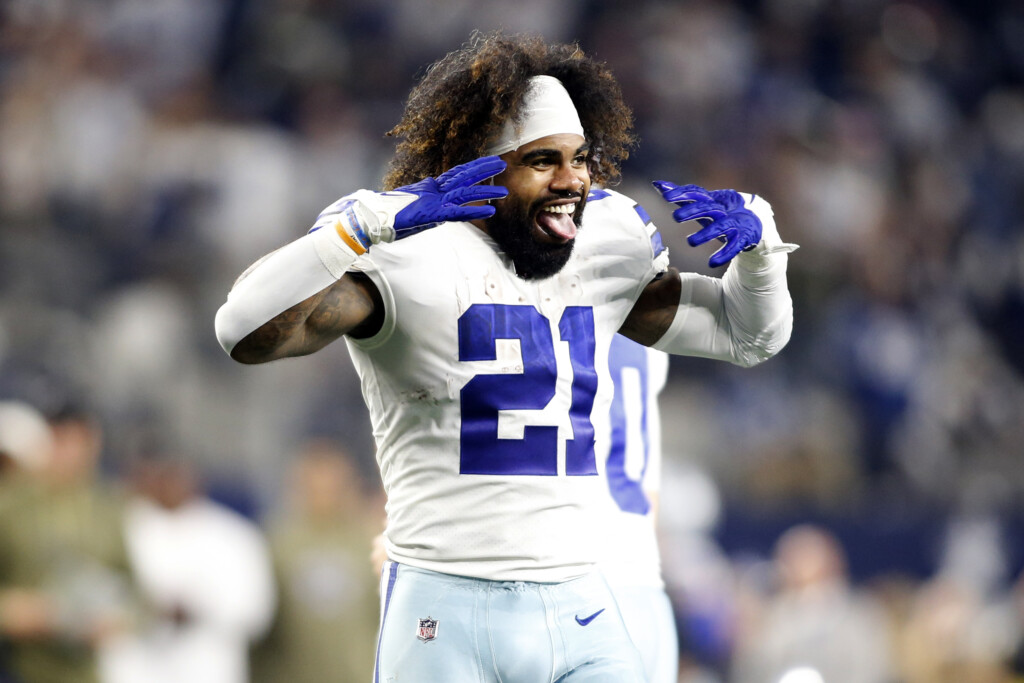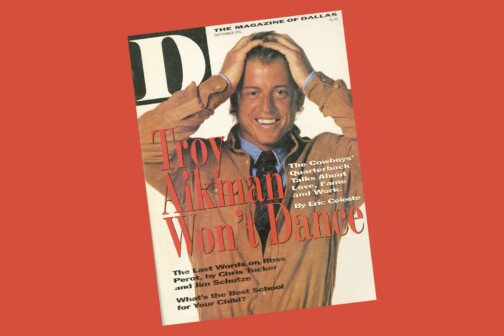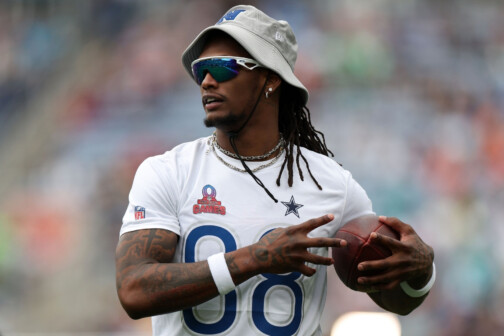The Cowboys were always wrong about Ezekiel Elliott.
They were wrong to draft a running back fourth overall in the 2016 draft ahead of what became one of the NFL’s best cornerbacks of the last decade, pumping premium resources into a brittle position instead of a durable one.
They were wrong to fold at the poker table and deliver him the market-setting second contract he craved, the sort of deal that only works if a total physical anomaly remained one well into the twilight of his career, never mind his workload and aggressive disposition guaranteed he’d take more punishment than most of his contemporaries.
They were wrong to insist that they go as Zeke goes, an anachronism in the modern, pass-centric NFL.
And they were wrong to unofficially cater their depth chart to the salary cap by fighting what should have been an obvious transition to Tony Pollard for the better part of two years, only acquiescing when Pollard emerged as one of the league’s most efficient runners as the juice in Elliott’s legs was down to its final drops.
All of that makes it a mild shock, then, that the Cowboys finally made the correct choice to cut Elliott ahead of his age-28 season, a move that will save them in excess of $10 million this season and tens of millions more over the next three. Sentiment has little place in the gory business of football, and the Cowboys rightly concluded that Elliott would harm far more than help were they to keep him around one more season.
But just as it’s impossible to reduce a human game all the way down to a math equation, it’s boring, too. This was perhaps the greatest casualty of the discourse that followed Elliott from the beginning: the dissection of his positional value and his contract always obscured the marvelous things he could do on the football field.
He leaves Dallas having rushed for more yards than anyone other than Emmitt Smith and Tony Dorsett, and if it’s cheap to use the most obvious running back statistic as shorthand for Elliott’s impact on the Cowboys, understand that it’s fair, too. He made the Cowboys’ hallowed running back duo a triumvirate, and at the peak of his powers, Elliott was the most captivating of the three for how he teased archetypal perfection.
Which seems counterintuitive given that nothing about Elliott as a runner was as iconic as Emmitt’s slither or Tony’s sizzle. It was the sum total of his gifts that made him special. No box was left unchecked. Elliott was big and he was fast; he was agile and he was brutal; he’d wear opponents out and he’d dice them apart in an instant. To watch Ezekiel Elliott from 2016 through 2018, when he led the NFL in rushing yards per game each season and captured the rushing title twice, was to be cognizant of all the possibilities on the table each time he carried the ball. Not only a breakaway run to the end zone, although there was that, but the permutations between here and there. Third-and-short gainers up the gut through a pile. Stretch runs off tackle, past defensive backs so certain they had the right angle to chase him down. Full-speed hurdles, and cutbacks against the grain, and toss sweeps, and and and. There was no limit to the ways he could attack a defense, and seemingly no limit to the number of times Dak Prescott could shove the football in his gut and tell him to do exactly that.
Until, of course, there was. Elliott’s season-by-season rushing-yards-per-game average is a straight downward slope, a byproduct of him not only touching the ball more than any active NFL runner but the margin being a whopping 309 times more than second-ranked Derrick Henry—despite playing in only one more game. His body never broke; even last year, at the nadir, he shrugged off a gruesome-looking knee injury and was back within three games. He just slowed down, stalled out. Elliott could still batter his way to short yardage, still throw teeth-chattering blocks, still line up each week and give whatever he could, as long as he could.
The sad reality is those things could only take the Cowboys so far once the burst of his early 20s evaporated. So, they moved on.
There is a place for him in the NFL somewhere in a less high-profile role, earning a fraction of the money. In a way, that will liberate him: once he finds it, Elliott will be free to be regarded on his own merits instead of a walking commentary on the degradation of the running back position or the Jones family’s ineptitude. He’ll be viewed for what he is instead of what that means. (On the field, at least; I’m not holding my breath for this to be discussed on the regular any time soon.)
In time, I suspect that will hold true in Dallas, too. Context fades, and what remains will be the memory of a captivating player who, at his apex, excelled like few Cowboys ever could. If that led to less than he deserved in the win column, to say nothing of his bizarre final moment with a star on his helmet, his disproportionate status and financial windfall more than made up for it. Zeke Elliott did well for himself in Dallas. He indirectly held the Cowboys back from doing better along the way, too.
Get the D Brief Newsletter
Author






